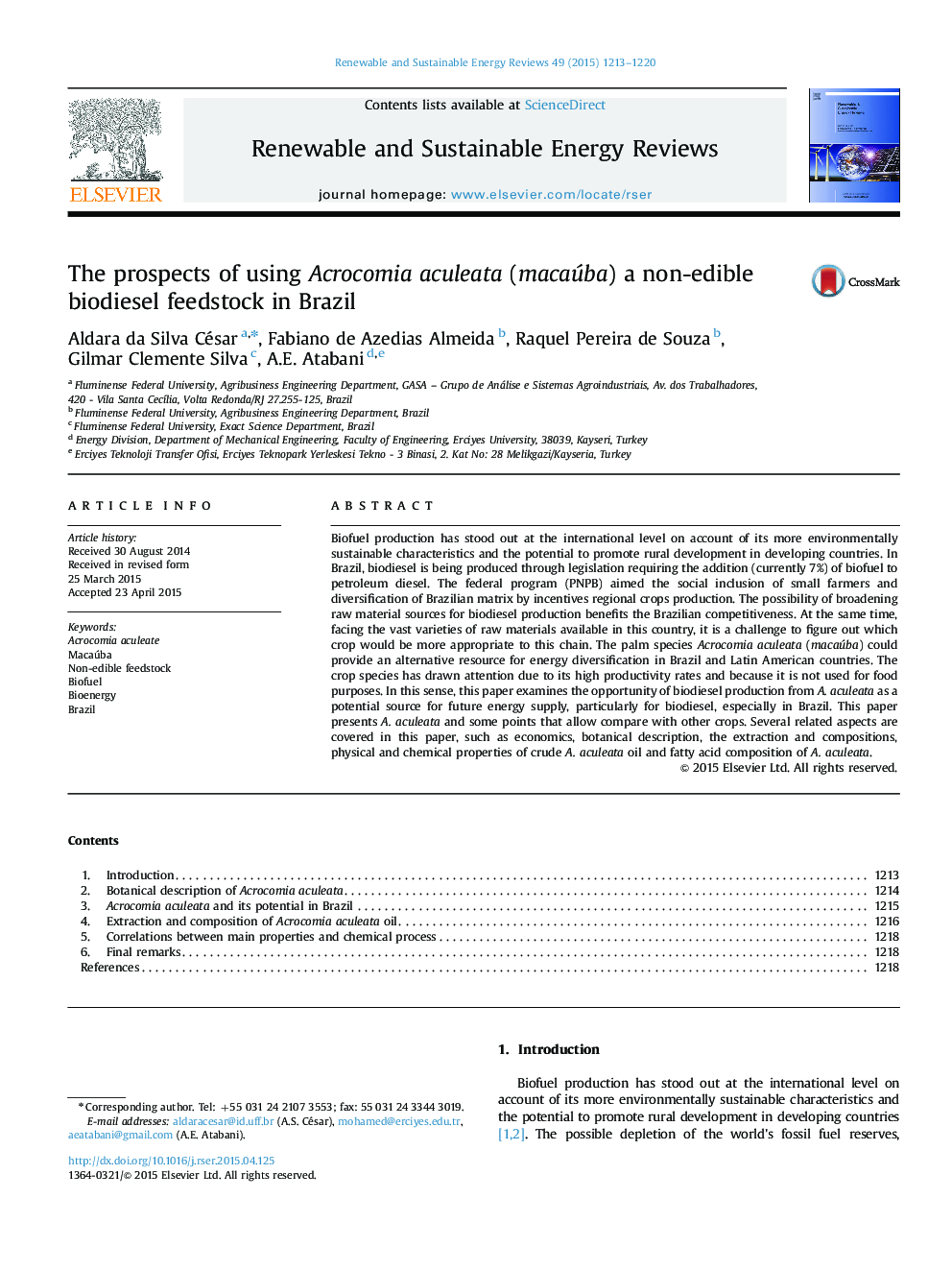| Article ID | Journal | Published Year | Pages | File Type |
|---|---|---|---|---|
| 8116986 | Renewable and Sustainable Energy Reviews | 2015 | 8 Pages |
Abstract
Biofuel production has stood out at the international level on account of its more environmentally sustainable characteristics and the potential to promote rural development in developing countries. In Brazil, biodiesel is being produced through legislation requiring the addition (currently 7%) of biofuel to petroleum diesel. The federal program (PNPB) aimed the social inclusion of small farmers and diversification of Brazilian matrix by incentives regional crops production. The possibility of broadening raw material sources for biodiesel production benefits the Brazilian competitiveness. At the same time, facing the vast varieties of raw materials available in this country, it is a challenge to figure out which crop would be more appropriate to this chain. The palm species Acrocomia aculeata (macaúba) could provide an alternative resource for energy diversification in Brazil and Latin American countries. The crop species has drawn attention due to its high productivity rates and because it is not used for food purposes. In this sense, this paper examines the opportunity of biodiesel production from A. aculeata as a potential source for future energy supply, particularly for biodiesel, especially in Brazil. This paper presents A. aculeata and some points that allow compare with other crops. Several related aspects are covered in this paper, such as economics, botanical description, the extraction and compositions, physical and chemical properties of crude A. aculeata oil and fatty acid composition of A. aculeata.
Related Topics
Physical Sciences and Engineering
Energy
Renewable Energy, Sustainability and the Environment
Authors
Aldara da Silva César, Fabiano de Azedias Almeida, Raquel Pereira de Souza, Gilmar Clemente Silva, A.E. Atabani,
